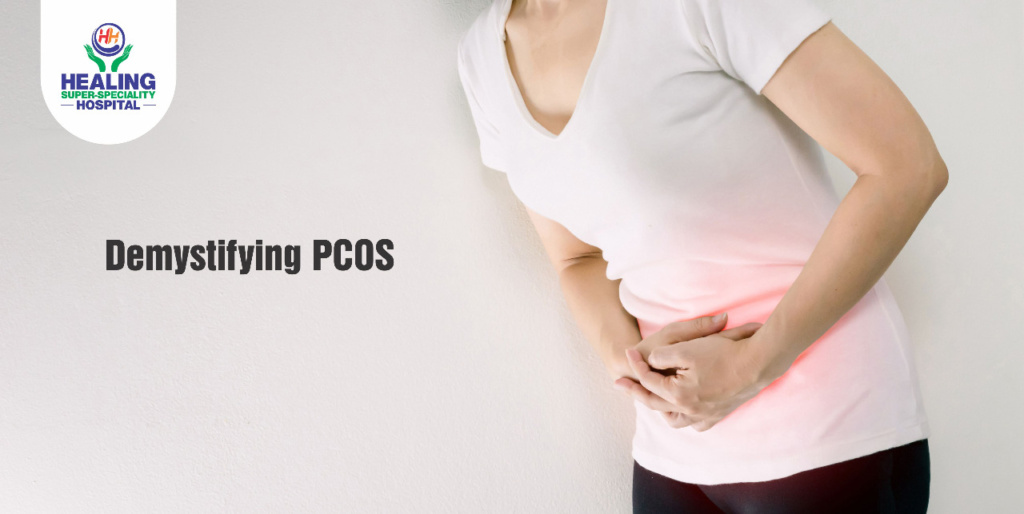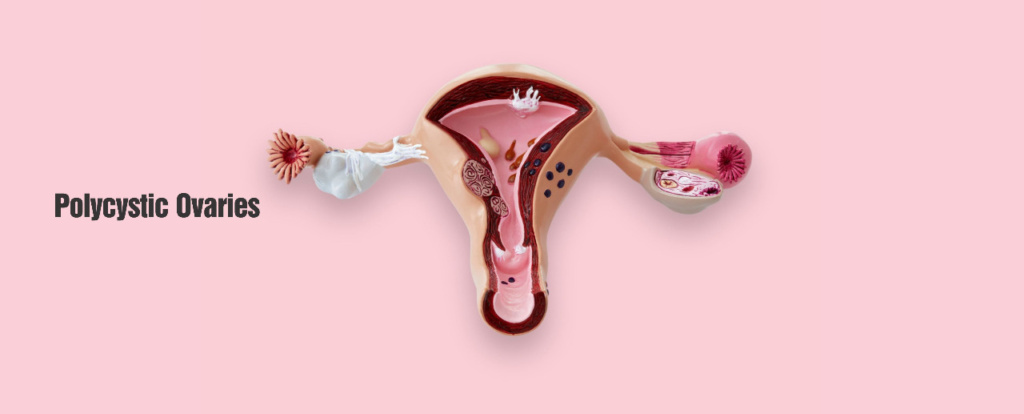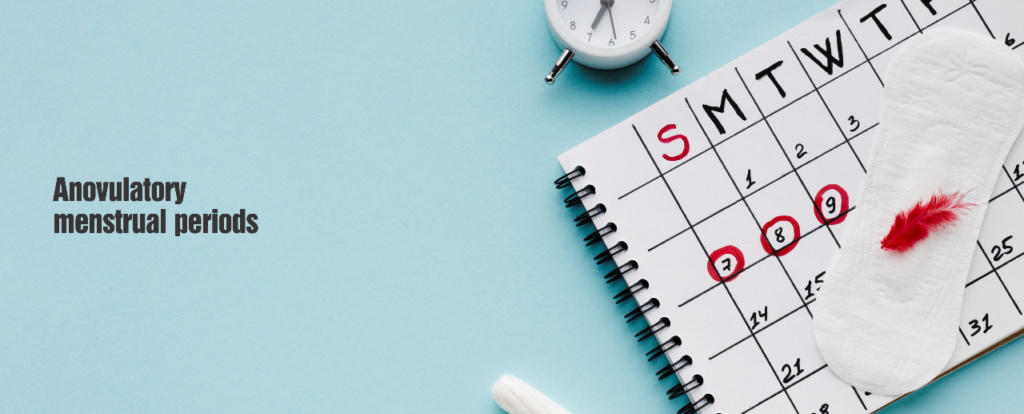
Polycystic Ovarian Syndrome or PCOS is a relatively common hormonal disorder prevalent in women of reproductive age group. Polycystic Ovary Disorder (PCOD) and PCOS are used interchangeably, although there is difference between both the conditions. While in PCOD, the ovaries get enlarged with multiple cysts, PCOS refers to a significant metabolic issue.
Although a single cause of PCOS cannot be pin pointed, it is generally linked to diabetes and insulin resistance genes. Also, a sedentary lifestyle coupled with bad eating habits can cause inflammation in the body that can be a trigger for PCOS.
PCOS is generally characterized by certain features. They are enlisted below:
Hyperandrogenism: This means you have heightened male hormones in your body that can show up as acne, excessive facial hair growth or thinning of hair etc.

Polycystic ovaries: Multiple cysts develop on the ovaries which makes them appear enlarged. This can also cause symptoms such as irregular periods, weight gain, excessive facial hair growth or difficulty in conceiving etc.

Anovulatory menstrual periods: Women who suffer from PCOS can have anovulatory menstrual cycles wherein the process of ovulation does not take place. This can make it difficult to conceive.
The most common symptoms of PCOS include:
Inconsistent periods: The most common signs of PCOS are irregular periods and absence of ovulation. Some women experience no periods and need to be administered medication to induce periods. On the other hand, some can also get only a black or brown discharge instead of menstrual blood. Heavy and prolonged periods could also be present in certain women.
Sudden weight gain: Women with PCOS tend to gain weight easily as they are likely to have insulin resistance. Since it is not easy to lose the extra weight, overweight women with PCOS are at a higher risk of developing heart diseases and diabetes.
Excessive hair growth: One of the most common symptoms of PCOS, hirsutism is a condition caused by high levels of androgens in the body. It is characterized by dark hair on the face, stomach, back and thighs etc.
Darkening of the skin: Discoloration of the skin, especially in the folds of neck, groin and armpits is a classic sign of insulin resistance in women suffering from PCOS.
Acne and hair fall: Due to an increase in male hormones, the skin becomes oily which leads to development of acne. This is especially visible on the chin and jawline. Also, hair fall and thinning of scalp occurs.
Mood swings: Women suffering from PCOS have a higher probability of suffering from headaches, extreme mood disorders such as depression and anxiety.
Although there is no permanent cure for PCOS, certain treatment methods can help in easing the symptoms. These include birth control pills (for regulating periods), metformin (for treatment of type 2 diabetes), anti-androgenic medicines (to reduce facial hair growth and acne).
FOR MORE INFORMATION AND APPOINTMENT CALL:
0172-5088883, +91 9464343434























